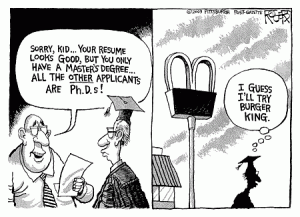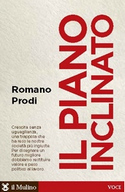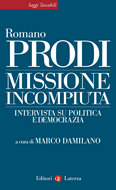We cannot imagine a better future simply cutting our engagement on the future
 Speech by Romano Prodi at the conference: “Contemporary Threats and Opportunities – Academic Freedom and Institutional Autonomy within the Context of
Speech by Romano Prodi at the conference: “Contemporary Threats and Opportunities – Academic Freedom and Institutional Autonomy within the Context of
Accreditation, Quality Assurance and Rankings” at “Aula Magna di Santa Lucia” in Bologna University on September 16th 2011.
We are here to celebrate the great achievement of the signature of the Magna Charta. It was 23 years ago and we are here to welcome 31 new universities signing it, to demonstrate how this process is going on and how it was well taken by academia and by the scientific environment. I read some of the outstanding papers concerning quality of teaching, monitoring and the great eternal problem of the relations between equality, autonomy and freedom and even more between freedom and the necessity of any democratic institution to be accountable to the society.
When I was invited to be here I clearly stated to the rector and to the former rector, my two friends, that my life in the university ended when I started my political life in 1995, that is too many years ago to give a contribution to your wisdom. I am therefore obliged to spend the few minutes that I have at my disposal trying to understand what happened around the sacred principles of the Magna Charta in the last 23 years.
The problems of our university examined in the new context of the globalised world. And the contribution of the university to the change of the world and the change of the universities, because and in consequence of the change of the world is such a rapid change in environment that we have to monitor every day.
The first statement of the MC is that the future is mainly based on the cultural, scientific and technical development and this is in large part the task of the university. And the fantastic increase of the university numbers in the new developing countries is the clear message in this direction, as it is a worrying message in the opposite direction the decreasing engagement of many governments (not only in Europe), in financing the university system. We could quote many European examples but it is certainly more striking to consider California. Few decades ago in order to assure access for all, the tuition charges for in state Californians were abolished and the funding was one of the primary duties of the state because, I quote, “University is a public good, the best guarantee for the future”.
In the fifties the state of California was paying around 80 % of the cost of the students as a consequence of this general right recognised by the Californian state and the contribution has dropped to less than 50% in the last 3 years and this year will be cut again. We read in the last issue of the Economist that in California the spending on prisons passed the spending of university since 2004. Can you believe that? The tuition, of course, is higher and higher and is not far from the 40 thousand dollars of the comparable private university.
Of course nobody can imagine that the resources to universities are unlimited but we have to be worried that the first sacred principle of the Magna Charta is applied to less and less people, i.e. the right to be part of the scientific evolution. We understand that in the period of economic crisis and budget crisis the university must give its contribution to the necessity of public finance and the equilibrium of the budget. But the dynamic equilibrium of any democratic state can be achieved through a growth of productivity and innovation. And growth of productivity and innovation cannot be achieved without a great contribution of university. And so a cut in the expenditures is not sufficient. We need the resources in order to build a new society, that is, to create more knowledge. We cannot imagine a better future simply cutting our engagement on the future.
It is clear that this does not mean a submission of the university and of the knowledge to the economic growth but certainly there is the necessity of a balance between cost and benefit in our public or private action, university included; and the inseparable mix of research and teaching that is the task of the university. The crucial role of higher education is an undisputed character of our society but the growing cost of high education is an undisputed concern. We are squeezed between the growing number of students and the growing costs to be paid to offer each one of them the needed education and the needed capacity to understand and promote innovative research.
Universities are under this strain and universities have the right to ask governments for adequate financing but they must be ready to answer to both this challenge and must be ready to offer to the government and the public a clear answer to the demand of accountability. In the academic freedom, we have to pose a question at this point: is the academic freedom squeezed between relevance and accountability? This is our problem that we have in any university of the advanced democratic countries. In any case, the essential task of our universities cannot be achieved if we have not the adequate finance to do it. It is so for the future of the principle of the Magna Charta; this problem of the adequacy of the instruments is one of the basic problems.
Maybe we are squeezed between relevance and accountability but only if we have not clear in our mind that this is not an end, is not a value per sé but is a means to get better education and research. Academic freedom cannot be nullified by the judgement of state controllers but we need in any case to have a judgement of external nature provided that there are rules and guaranties. Academics freedom must make any effort to meet the expectation of the society. Sometimes there will be conflicts between them but part of our academic duty to make any effort to reconcile freedom and expectations of the society. Reconciliation has no specific rule but it must be renovated every day. It is a difficult task of any academic board. Academia must play an important role in the evaluation of the balance between efficiency and freedom.
In the great innovation process we all agree that the three “T” that the Anglo-Saxon culture stresses: Talent, Transgression and Tolerance (also transgression is part of the innovation of university) must live together in a synergy between the individual and the institution. Conflicts are unavoidable, but if you want to have a growing role of the university, accountability and freedom must find their way to live together.
The sophisticated methodology that you have discussed yesterday in order to grasp the appropriated presidium and value of accreditation requirements, quality assurance process and rating have demonstrated a certainly positive implication on the reconciliation of freedom, authority and effectiveness, in line with the Magna Charta principle but taking account what is happening now after 23 years in the world.
Let us go back to the initial question: had the university been able to win the challenge with the globalisation in these 23 years? For many aspects, yes. New universities were born in many parts of the world, relations and synergies among universities are every day increasing. Many universities open branches abroad. There is a new synergy in this field, especially in China, India and many Asian states, and South America. New universities open every year new campuses and laboratories. There are new campuses even in Saudi Arabian desert. If we follow the birth and the development of these new universities, it is clear how deep was the influence of the principles of the Magna Charta. Nevertheless, we have important examples which demonstrate how the university is not a priority in the political choices.
I give you some examples of my experience as President of the European Union. The progress on the harmonisation of curricula, so important in the Bologna process, has made real progress. But difficult steps on the mobility of students and professors are still there. The medieval mobility is clearly testified in the pictures of our ancient palaces here in Bologna. Our university has given an incredible contribution to the creation of a common European demos. Few politicians think that the same contribution can be given by the university today. I have personally experienced when I asked an increase in the budget of the Erasmus project. This project has helped to mix young generations, the European young generations, and to create a new universal generation. It was blocked, absolutely blocked by the ministers of finance. There are also proposals to cancel it or diminish it, heavily. The proposal of the creation of a Mediterranean university sharing headquarters north and south, with the same number of professors, north and south, the same number of students north and south, the students having the curricula of two years in the university the north and two years in the university to the south, had been vetoed This is not a priority of the new Europe.
Clearly the universities are not considered among the great political instruments of the contemporary societies. And why? Budget constraint? Yes, but also a much more interesting evolution: the shorter and shorter view of the decision making process. And this is a great problem for contemporary democracies and universities, because education by definition is a long term investment. Investing in Academia is against the short-terms bias of contemporary politics. Therefore, my dear colleagues, the role of the university will be under strain as a consequence of this evolution of our democracy. No surprise, therefore, if also the principles of the Magna Charta will be under strain, even in the countries in which the universities and democracy are deeply rooted.
The academia needs by definition a bet on the future. This is true in Europe and outside Europe. As the Magna Charta underlines, it is depository of the heritage of the European humanism and the great responsibility in order to avoid clashes, conflicts and divisions because, just because of the long term view that is typical of the academia. If you look at the contemporary political events higher education is still a driving force in the change of the society. Take Egypt: the Egyptian universities were the place where fundamentalism was born, but it is around the universities the Arab spring has taken shape. In any avant-garde movement there is a moment in which the university takes a leading role. And we could quote a long list of examples. This is why the relation between university and political power is always difficult. The political power understands well that the new events and changes happen inside or around a university.
And this is why there is such a delicate balance between freedom and accountability. Because it goes just inside the core of the political life. In most cases university can be a cradle and a pillar of democracy; always linked to the contribution of the improvement of society and even more directly to the future life of the students.
The most dramatic aspect of the university today in many parts of Europe is that this link between high education and a better future is more and more uncertain, or is more and more under strain. We are assisting to the end of the correlation between graduation and a better future: this is a great problem.
With higher unemployment and even higher youth unemployment, young people look at the university with increasing distance, because it is not anymore their safe harbour. You have the youth unemployment that is 41% in Spain, 28% in Ireland, 28% in Italy, 23% in France, 19% in UK, 18% in US, and even in Germany, where unemployment is very low, young unemployment is 10%. And it is not easy to explain to this generation the wonders of the spirit of the Magna Charta, that is all written for the future. The beauty of it is that is written for the future. And I did remember the years of the Magna Charta, the year before, when, I remember father of a very humble graduate, who in the graduation came to me and told “Professor, I didn’t have any chance in my life, but my son today is a graduate!”
This sense of hope for the future is not anymore in our university and this is a problem for us. We have to reinstate it; the university has always been a source of hope and in order to implement faithfully our principle we must start again to create hope! Clearly it is not the main mission of the university. The university was born to create knowledge and wisdom, but hope is the instrument to have more effect on creating wisdom and knowledge. It is clear that to create hope is the main task of politicians but if university is not a place forging hope for tomorrow it is in the meantime difficult to perform our task to create innovation. Hope and desire to know go together and we have the moral obligation to inject hope into the new generations. And the difference that I find in the students in Asia from our students here in Europe is this: that they have clear idea that the university gives them hope, gives them a door open to their future life.
I think that we must give our contribution to this great social task.






















